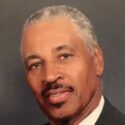 Kathryn Kirchgasler, a lecturer in curriculum and teaching at the University of Kansas, has conducted research on how certain groups of students are separated into less challenging courses in science. Her research shows how U.S. students have been separated into different levels of science classes for more than a century and how research and standardized testing have perpetuated those inequalities.
Kathryn Kirchgasler, a lecturer in curriculum and teaching at the University of Kansas, has conducted research on how certain groups of students are separated into less challenging courses in science. Her research shows how U.S. students have been separated into different levels of science classes for more than a century and how research and standardized testing have perpetuated those inequalities.
“How students are divided in current policy shares some of the same assumptions made 100 years ago, when immigrants from southern and eastern Europe were seen as not ready for or interested in physics and chemistry,” Kirchgasler said. “Trying to close so-called achievement gaps can paradoxically create new inequities by the tools we use to assess them. The premise that demographic groups have different learning needs can actually set students onto distinct trajectories that culminate in the de facto racial segregation of high school courses.”
“Dividing students by assumed capability and needs links back to a racialized history in U.S. schooling,” Kirchgasler added. “Cultural assumptions get built into the psychological tools, data and algorithms we use to sort students today.”
The research was published in a book chapter entitled “Scientific Americans: Historicizing the Making of Difference in Early 20th-Century U.S. Science Education.” The book is A Political Sociology of Educational Knowledge: Studies of Exclusions and Difference (Routledge, 2017).









